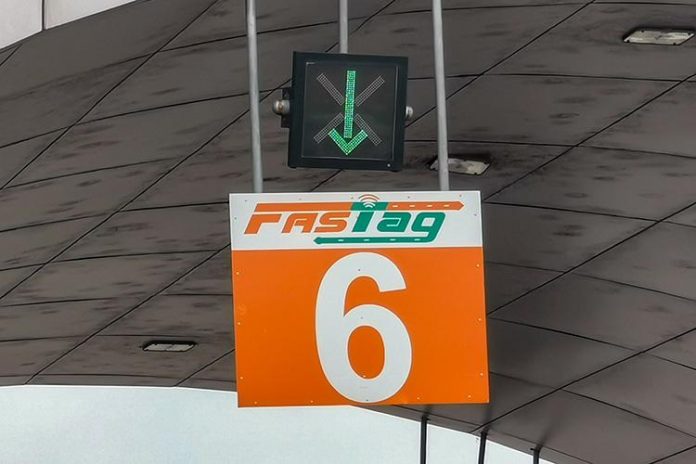The FASTag is an RFID sticker for vehicles, which ensures that toll can be collected when the vehicle is in motion.
If you’re driving on a national highway in India, long lines at toll plazas are a given in many places, along with scrounging for cash. Now, that’s going to change with the mandatory FASTag, a sticker mandatory from December 1 for all vehicles. If you do not get the FASTag by December 1, you pay double the amount of the toll.
On Thursday evening, Road Transport and Highways Minister Nitin Gadkari said that the sticker is being given for free till December 1, and the cost of the security deposit will also be borne by the government.
What is FASTag
The FASTag is an RFID sticker for vehicles, which ensures that toll can be collected when the vehicle is in motion. RFID, or a radio frequency identification stickers, contains electronically stored information. It uses an electromagnetic frequency to deduct the tag.
Once you have the tag on the windshield, you will be allowed to cross the toll plaza easily, and the toll amount will be automatically deducted from your account.
The near non-stop movement of vehicles would be facilitated by dedicated FASTag lanes at toll plazas on national highways. When you approach the plaza, there will be an RFID reader above that will read the FASTag and deduct the amount a prepaid account that is linked to that particular tag — removing any human interaction or need for cash.
All toll plazas will have one lane at the left where one can pay cash, albeit at double the charge.
There is a security deposit of Rs 150 that the government is currently covering.
FASTags aren’t new, and have been fitted on commercial vehicles since December 2017, but wasn’t mandatory up until now. According to the National Payments Corporation of India, 6 million FASTags have already been issued.
Whether you purchase it online and register or buy it from one of the locations, documents needed are the vehicle’s registration certificate, passport size photograph and KYC documents.
FASTags aren’t accepted on state highways. For this, the government earlier said that it was MoU’s with states in order to standardise the process.
“When a vehicle passes through a toll, an SMS with date, time and place of transaction will be sent to the owner of the vehicle. The master data of all transactions will be with the concessionaire of the toll booth concerned, along with the bank with which the owner has registered the FASTag and the National Payments Corporation of India,” officials told The Hindu.
How to purchase
The FASTag can be purchased on Amazon, select bank branches of 22 national banks, some petrol pumps, and national highway toll booths. If you wish to purchase the tag offline, the point of sale locations can be viewed here.
The tag in itself can be obtained for free, but other charges are applicable depending on the point of purchase. If the tag is obtained online, users can register the tag using the ‘My FASTag’ app.
Privacy concerns
However, it is important to remember that there are privacy concerns with FASTag. Touted to be the Aadhaar for vehicles, Gadkari had said it can track all the movements of a vehicle.
“Cameras at toll booths will take photos of passengers in a vehicle, which will be useful for the Ministry of Home Affairs as there will be a record of a vehicle’s movement,” he had earlier said.
“As transport minister Gadkari said, the government will also use the video or data for any for analysis. And that will happen in a non-consensual manner, and outside the purview of a data protection framework, and without paying heed to the Supreme Court’s landmark judgment on privacy,” Pranesh Prakash, a fellow at Centre for Internet Society told Mint.
This is important as India does not have a data protection law at the moment. The Personal Data Protection Bill which would restrict the use of a citizen’s data without their consent, is expected to be tabled in the ongoing Parliament session.


